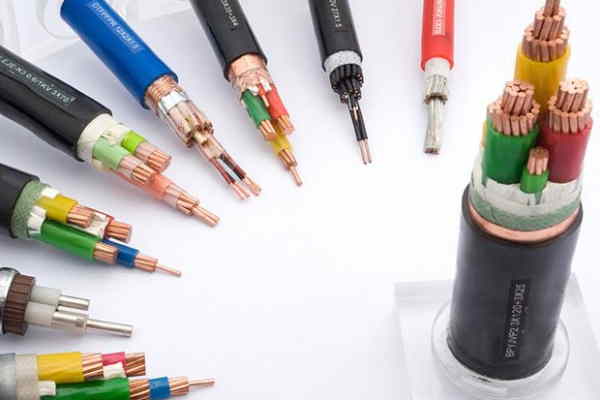Industrial cables are a type of electrical cable that are specifically designed for use in industrial settings. These cables are typically used to power machinery, lighting, and other equipment in factories, warehouses, and other industrial facilities.

Some of The Most Common Types of Industrial Cables Include:
There are several types of industrial cables, each of which is designed to meet specific requirements and applications.
1. Flexible cables – Flexible cables are designed to be flexible and easy to install, and they are typically used to power portable or mobile equipment. These cables are often made of rubber or plastic, and they are available in a variety of sizes and conductor materials.
2. Control and instrumentation cables – Control and instrumentation cables are used to carry low-voltage signals and control signals in industrial settings. These cables are typically made of twisted pairs or coaxial cables, and they are designed to be resistant to electromagnetic interference.
3. Power cables – Power cables are used to carry high-voltage electricity to machinery and equipment in industrial settings. These cables are typically made of copper or aluminum, and they are available in a variety of sizes and insulation materials.
4. Fiber optic cables – Fiber optic cables are used to transmit data and signals over long distances in industrial settings. These cables are made of glass or plastic fibers, and they are capable of transmitting data at high speeds with low signal loss.
Some of The Most Common Applications Include:
In addition to these types of industrial cables, there are also several applications for industrial cables.
1. Manufacturing – Industrial cables are commonly used in manufacturing facilities to power machinery, lighting, and other equipment. These cables are typically designed to be durable and able to withstand the harsh conditions of a manufacturing environment.
2. Mining – Industrial cables are also commonly used in mining operations to power equipment, lighting, and other systems. These cables are typically designed to be rugged and able to withstand the extreme conditions of a mining environment.
3. Construction – Industrial cables are often used in construction sites to power temporary lighting, generators, and other equipment. These cables are typically designed to be flexible and easy to install, and they are available in a variety of sizes and conductor materials.
4. Transportation – Industrial cables are also used in transportation systems, such as trains and buses, to power lighting, communication systems, and other equipment. These cables are typically designed to be flexible and easy to install, and they are available in a variety of sizes and conductor materials.
Summarize
Overall, industrial cables are an essential component of any industrial facility, and they are used in a wide variety of applications. These cables are designed to be durable, reliable, and able to withstand the harsh conditions of an industrial environment. Whether you need flexible cables for portable equipment, power cables for high-voltage electricity, or control and instrumentation cables for low-voltage signals, industrial cables are an indispensable part of any industrial operation.
